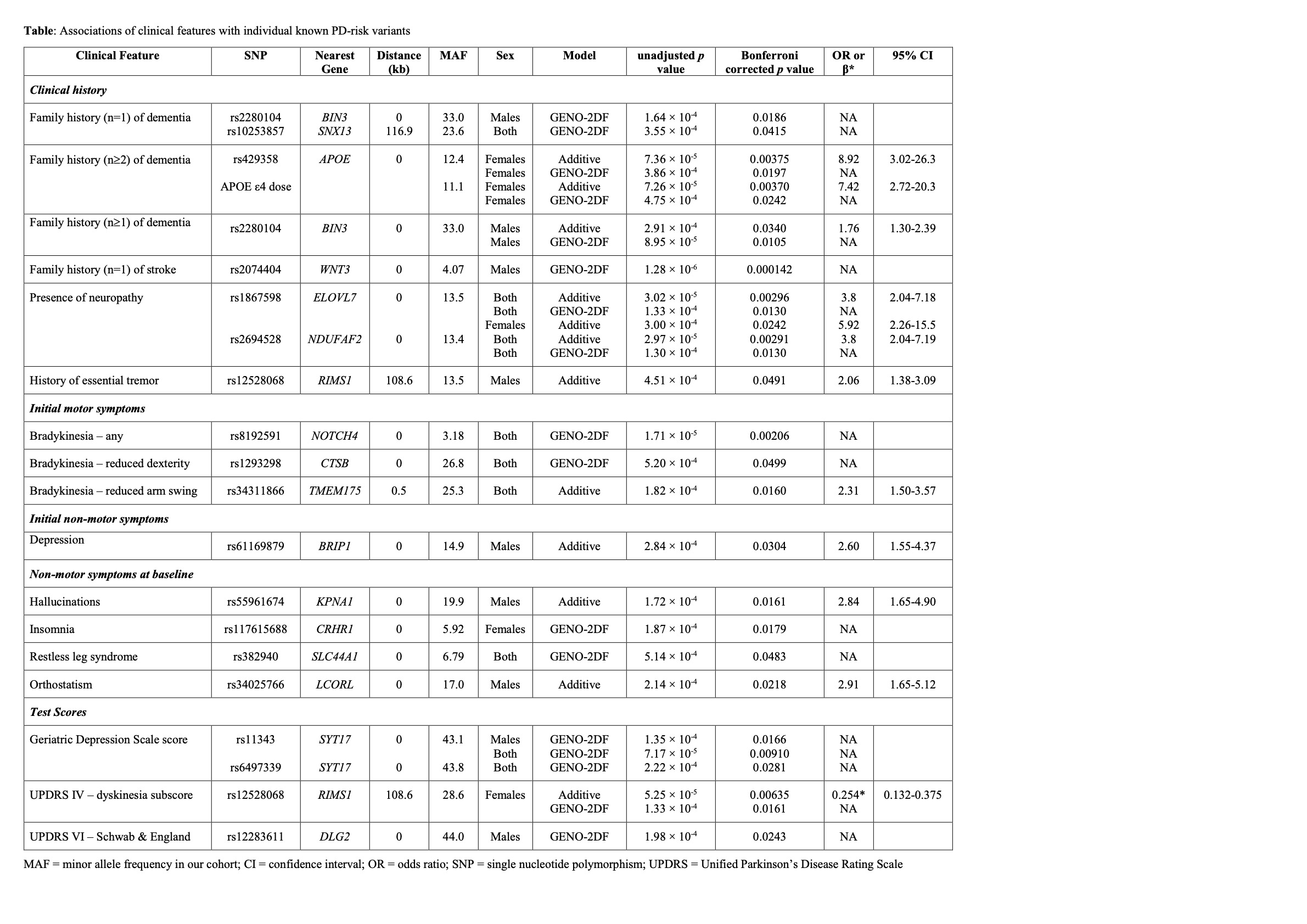Category: Parkinson's Disease: Genetics
Objective: Evaluate whether genetic risk variants for Parkinson’s disease discovered in case-control GWAS uniformly or differentially contribute to the clinical phenotype of PD.
Background: Genetic PD-risk variants have been discovered at more than 90 loci. It is unknown how these contribute to the presentation of PD.
Method: We used structured clinical documentation tools within the electronic medical record to obtain a standardized and detailed clinical phenotypic characterization at the point of care in a community-based PD patient cohort (N = 856). We included information on age at onset, disease duration, Unified Parkinson’s Disease Rating Scale I-VI, cognitive status, initial as well as study entry (baseline) motor and non-motor symptoms, comorbidities and family history of neurological disease with one or more than one affected family members. We then used linear or logistic regression to identify whether the genetic variants identified in prior GWAS studies are associated with discrete phenotypic characteristics and test scores at baseline assessment in our cohort, using as covariates sex, age-at-encounter, years-from-diagnosis, and for cognitive measures, education-years. A Bonferroni-corrected p < 0.05 was considered significant.
Results: Individual common PD-risk SNPs show significant associations with discrete phenotypic features or test scores (Table), sometimes in a sex-specific manner. Protein-protein interaction network analysis of genes with significant associations identified networks where genetic variation could impact network function.
Conclusion: Genetic risk-factors for PD do not uniformly contribute to disease presentation at baseline. These findings support the hypothesis that genetic risk factors contribute to the neurodegenerative process leading to disease phenotypes by impacting different gene and protein networks. They highlight that genetic background can have significant effects on disease phenotype.
To cite this abstract in AMA style:
B. Chase, A. Premkumar, B. Schoneburg, N. Kartha, J. Wei, H. Yu, A. Epshteyn, L. Garduno, A. Pham, R. Vazquez, R. Frigerio, D. Maraganore, K. Markopoulou. Parkinson’s-disease risk variants are differentially associated with discrete phenotypic characteristics of Parkinson’s-disease at baseline. [abstract]. Mov Disord. 2021; 36 (suppl 1). https://www.mdsabstracts.org/abstract/parkinsons-disease-risk-variants-are-differentially-associated-with-discrete-phenotypic-characteristics-of-parkinsons-disease-at-baseline/. Accessed April 21, 2025.« Back to MDS Virtual Congress 2021
MDS Abstracts - https://www.mdsabstracts.org/abstract/parkinsons-disease-risk-variants-are-differentially-associated-with-discrete-phenotypic-characteristics-of-parkinsons-disease-at-baseline/

